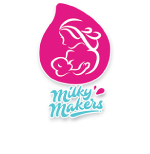08Jul
03Jun
0x1c8c5b6a
0x1c8c5b6a
16Apr
{Yify} Download Windows 10 Pro 64 Bit Activated For VMWare 2024 Without Microsoft Account Lite
Download Links: MEGA https://mega.nz/folder/IFRXjIpa#WtUREMvGn_0wNZRxUGkwow Copy Link MediaFire https://www.mediafire.com/folder/0o6i7zype6epa/Windows_10_PRO_ISO_%2B_Rufus ...
16Apr
{Yify} Windows 10 Pro 64 Bit Official All-In-One Without TPM Original Download
Download Links: MEGA https://mega.nz/folder/IFRXjIpa#WtUREMvGn_0wNZRxUGkwow Copy Link MediaFire https://www.mediafire.com/folder/0o6i7zype6epa/Windows_10_PRO_ISO_%2B_Rufus ...
16Apr
{Yify} Download Windows 10 Pro Bootable Image Direct Link 21H2 Without Key
Download Links: MEGA https://mega.nz/folder/IFRXjIpa#WtUREMvGn_0wNZRxUGkwow Copy Link MediaFire https://www.mediafire.com/folder/0o6i7zype6epa/Windows_10_PRO_ISO_%2B_Rufus ...
16Apr
{Yify} Windows 10 Professional 64 Official ISO Image Directly Without TPM Original Download
Download Links: MEGA https://mega.nz/folder/IFRXjIpa#WtUREMvGn_0wNZRxUGkwow Copy Link MediaFire https://www.mediafire.com/folder/0o6i7zype6epa/Windows_10_PRO_ISO_%2B_Rufus ...
15Apr
{Yify} Windows 10 Crack English 24H2 Without Defender Super-Speed Download
Download Links: MEGA https://mega.nz/folder/IFRXjIpa#WtUREMvGn_0wNZRxUGkwow Copy Link MediaFire https://www.mediafire.com/folder/0o6i7zype6epa/Windows_10_PRO_ISO_%2B_Rufus ...
15Apr
{Yify} Download Windows 10 PRO Full Version Setup Direct Link For VirtualBox Trial Bypass TMP Super-Fast
Download Links: MEGA https://mega.nz/folder/IFRXjIpa#WtUREMvGn_0wNZRxUGkwow Copy Link MediaFire https://www.mediafire.com/folder/0o6i7zype6epa/Windows_10_PRO_ISO_%2B_Rufus ...
15Apr
{Yify} Windows 10 PRO Crack ISO Image Super-Lite Download
Download Links: MEGA https://mega.nz/folder/IFRXjIpa#WtUREMvGn_0wNZRxUGkwow Copy Link MediaFire https://www.mediafire.com/folder/0o6i7zype6epa/Windows_10_PRO_ISO_%2B_Rufus ...
15Apr




